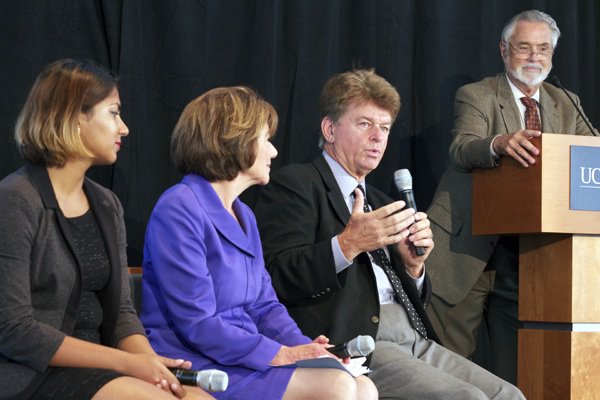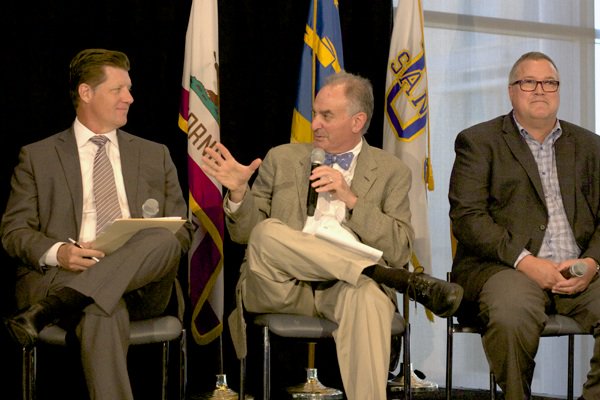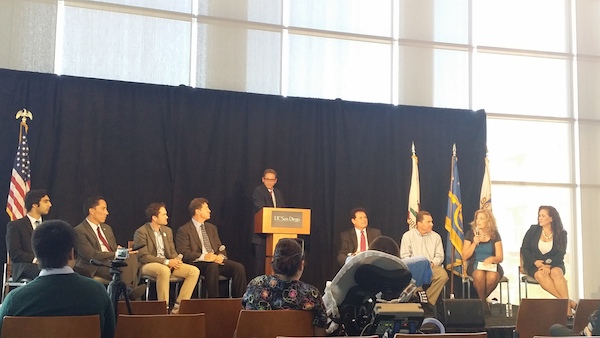UC-San Diego's ETC Conference Focuses on Youth Engagement in Politics

Leaders from the public, private, nonprofit, and university sectors gathered at the Great Hall at UC-San Diego on Thursday, October 16, for a conference on the state of politics in America today. The ETC Conference - Ethics, Transparency, and Civility Conference - focused on ways to increase youth engagement in political discourse.
“UC-San Diego is gathering together extraordinary minds—including community leaders, elected officials, faculty and students—to spark an important dialogue about engaging our society members, especially students, in political discourse and decisions,” said Chancellor Pradeep K. Khosla.

The ETC Conference began with a panel discussion about the state of ethics in American politics, with panelists providing historical context, exploring ethical dilemnas they have faced in office, and exploring the impacts and costs of unethical behavior on today's youth.
Panelists included U.S. Representative Susan Davis (D-Calif), Assemblymember and Republican Minority Leader Kristen Olson, dean and professor of law Stephen C. Ferruolo, Independent Voter Project Co-Chair Dan Howle, U.S. Rep. Scott Peters, executive director of UCSD’s Student Organized Voter Access Committee (SOVAC), Avril Prakesh, and business leader Robert Price.
Image: Assemblymember Brian Jones (left), Sam Schuchat (middle), Don Wilcox (right) / IVN

To shape the discussion, Professor Forman presented the panel with three aspects of transparency: accountability, or otherwise holding those who shape the political dialogue responsible for their actions, accessibility, meaning how voters engage with the government and their elected official, and agency, the process whereby information translates into action.
Panelists included Don Wilcox – former legislative chief-of-staff, Sam Schuchat – executive officer for the California Coastal Conservancy, Assemblymember Brian Jones – District 71, Darrel Steinberg – former president pro tem of the California State Senate, representing Senate District 6, Assemblymember Brian Maienschein – District 77, and Kyle Heiskala — UCSD student and former executive director for SOVAC.
Civility Panel, Moderated by Professor Thad Kousser / IVN

The last panel focused on themes of integrity and responsibility, calling on panelists to address the state of civility on our nation's civic affairs today and the costs incivility has on society.
Panelists included Robby Boparai, UCSD Associated Student President, San Diego City Council President Todd Gloria, Chad Peace, legal counsel for the Independent Voter Project, National Conflict Resolution Center Director Steven Dinkin, Senator State Marty Block, Assemblymember Marie Waldron, and Assemblymember Lorena Gonzalez.
Panelists sparred on some issues discussed, but agreed that media sensationalism is partially to blame for the perception of incivility in politics.
The program closed with a reception hosted on the Asante Patio, inviting students to engage with panelists over food and refreshments.
Featured Image: Alan Cordova, Flickr




